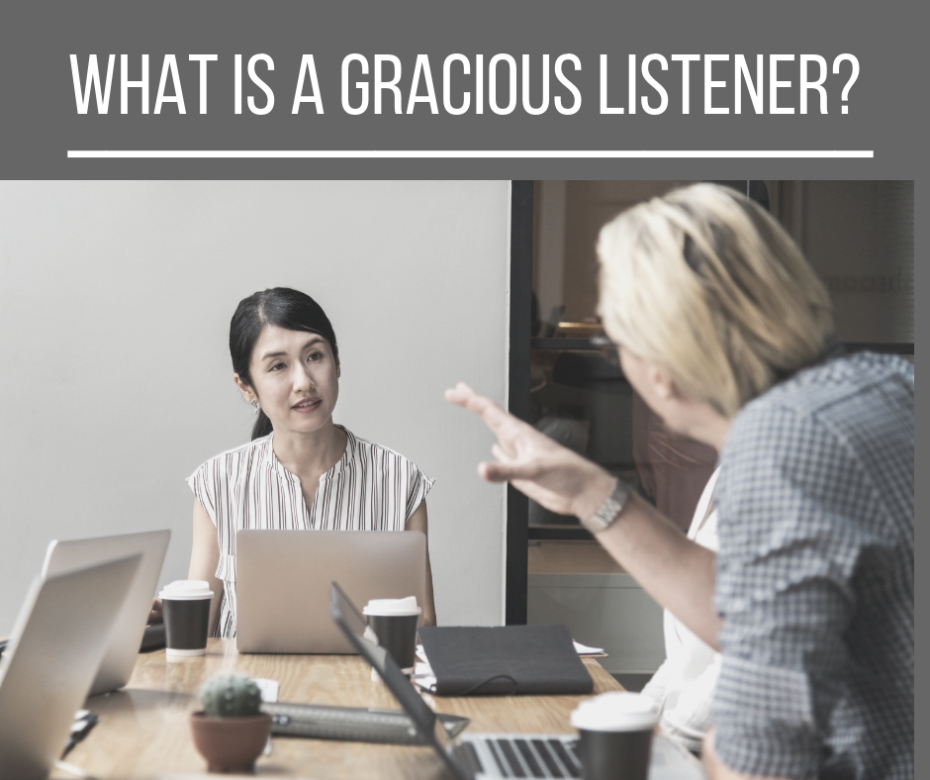Are you a good listener?
Are you a loving listener or a selfish one?
When you’re having a conversation, does your flesh show through?
I was convicted by this passage from Paul Zahl:
A prime example of original sin is the way people listen, or rather do not listen, to each other. When you are on an airplane, a train, or a bus, don’t you overhear conversations between two people, sometimes two friends even, when everything that is stated by the first person becomes the opportunity for the other to bring the conversation back to himself or herself? One person says, “I was sick last week,” and the other replies, “You know, I was, too,” or, “I’ve been pretty healthy this summer.” “I had a summer cold. I couldn’t believe how nasty it was.” “I don’t get summer colds,” the other answers; “anyhow, colds don’t bother me.” “Well, at least I didn’t have to lose any days at work,” the first person says. The second counters, “I haven’t lost any days at work this summer, either.” What is happening in this conversation? The two people are taking turns talking. That’s all there is to it. They are taking turns talking about themselves. This is routine in almost all human interchanges (Grace in Practice, p. 98).
Gulp.
I’ve been that person.
Actually, up until this very second I thought I was being a good conversationalist when I did that.
You see, I find it hard to talk to most people. I usually have to think about it. When I first met Abby, one of the signs whereby I knew she was the girl for me was that we talked easily and freely. No effort needed. It was perfectly and utterly natural. Normally, for me, it takes effort to talk to people. Even family. But I’ve tried to improve my conversational skills. If someone tells me a story, I thought that telling them about a similar experience I had was the right thing to do. I thought I was showing we have something in common, so the conversation could continue. But, according to Zahl, that was my sinful egocentricity coming through. Instead of just listening, I had to make every point in the conversation about me.
So what does gracious listening look like?
Grace is listening to another person without bringing the conversation back to you (Grace in Practice, p. 98).
So, simply listen. Focus on the person. That helps that person know that you love him or her. I can do that! It’s easier than talking! (At least, for me.)
And what kind of effect might that have?
Wonderfully, if someone ever does really listen to you, if they really do evince interest in what you are saying that is more than just how it applies to them, it can be very powerful. You may end up telling them everything! You may end up loving them forever and thanking them forever (Grace in Practice, p. 98).
That’s what happened to Abby and me!


